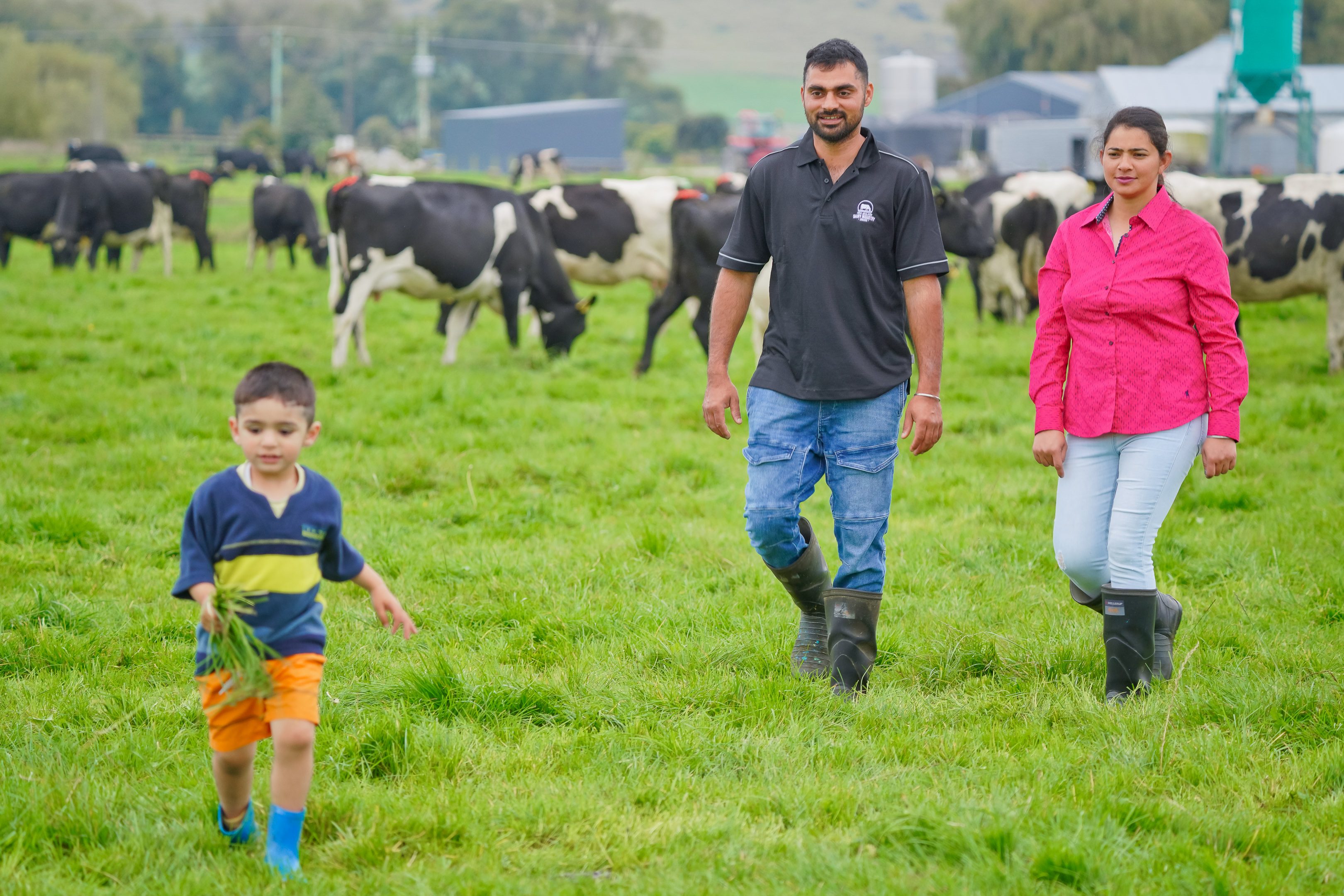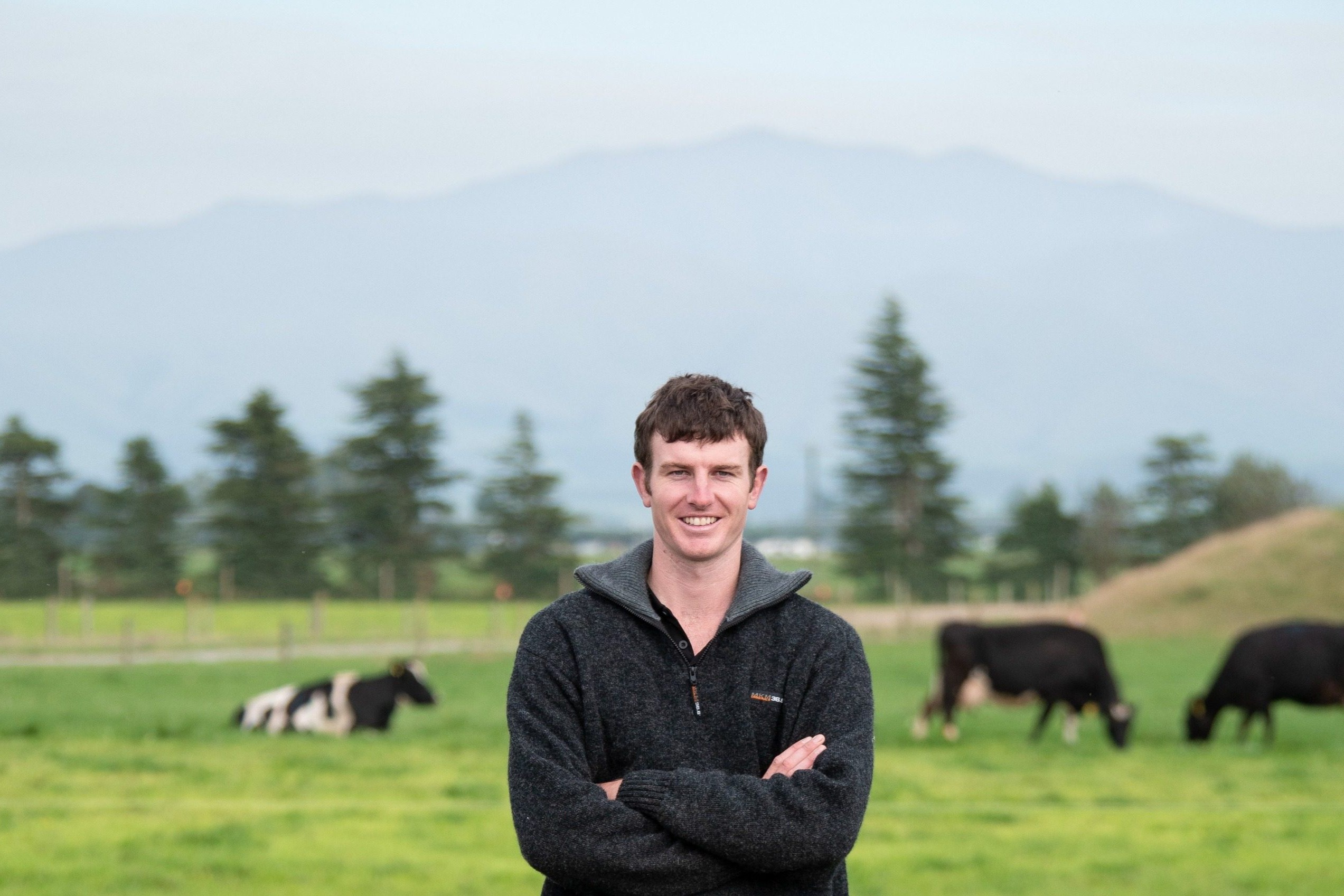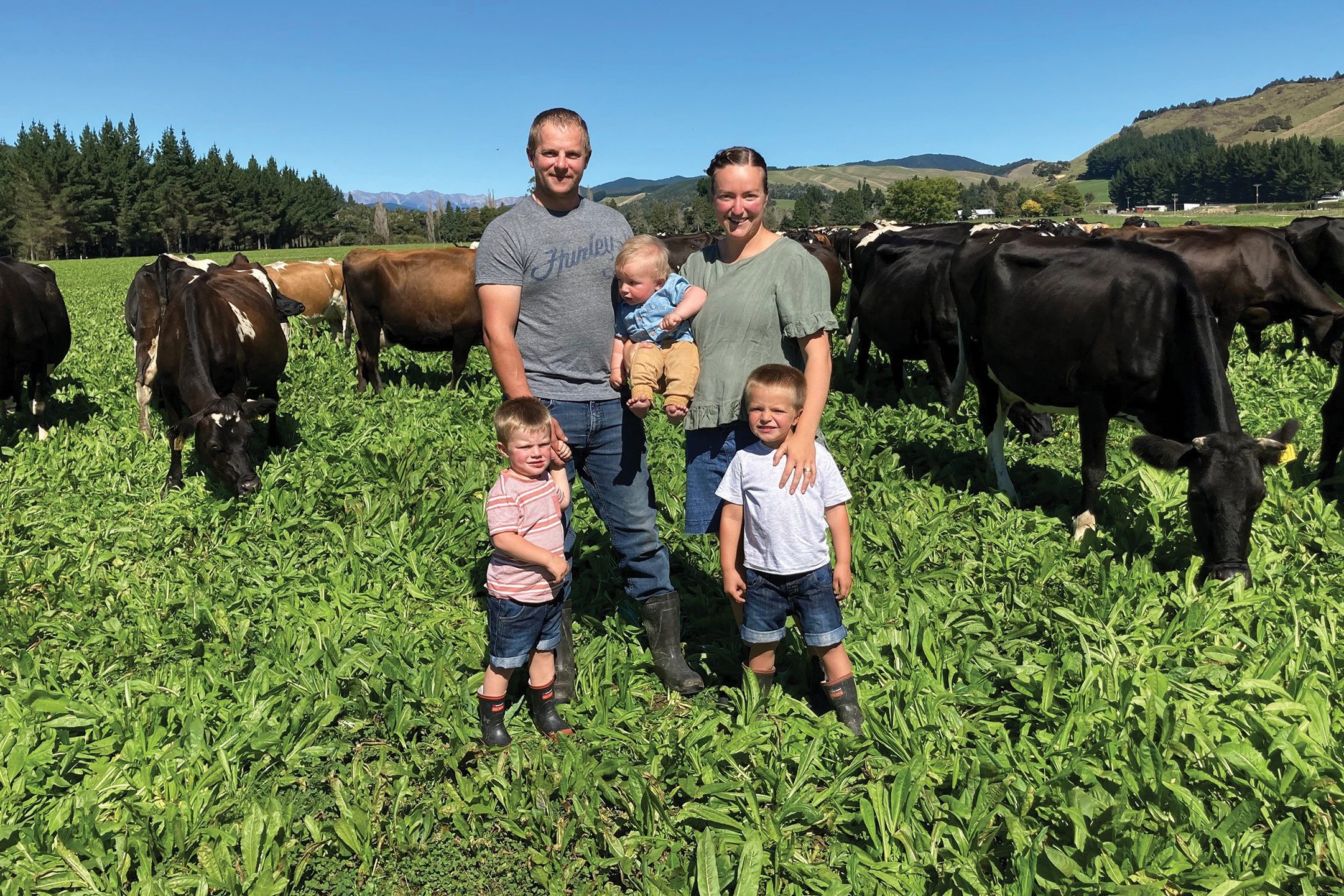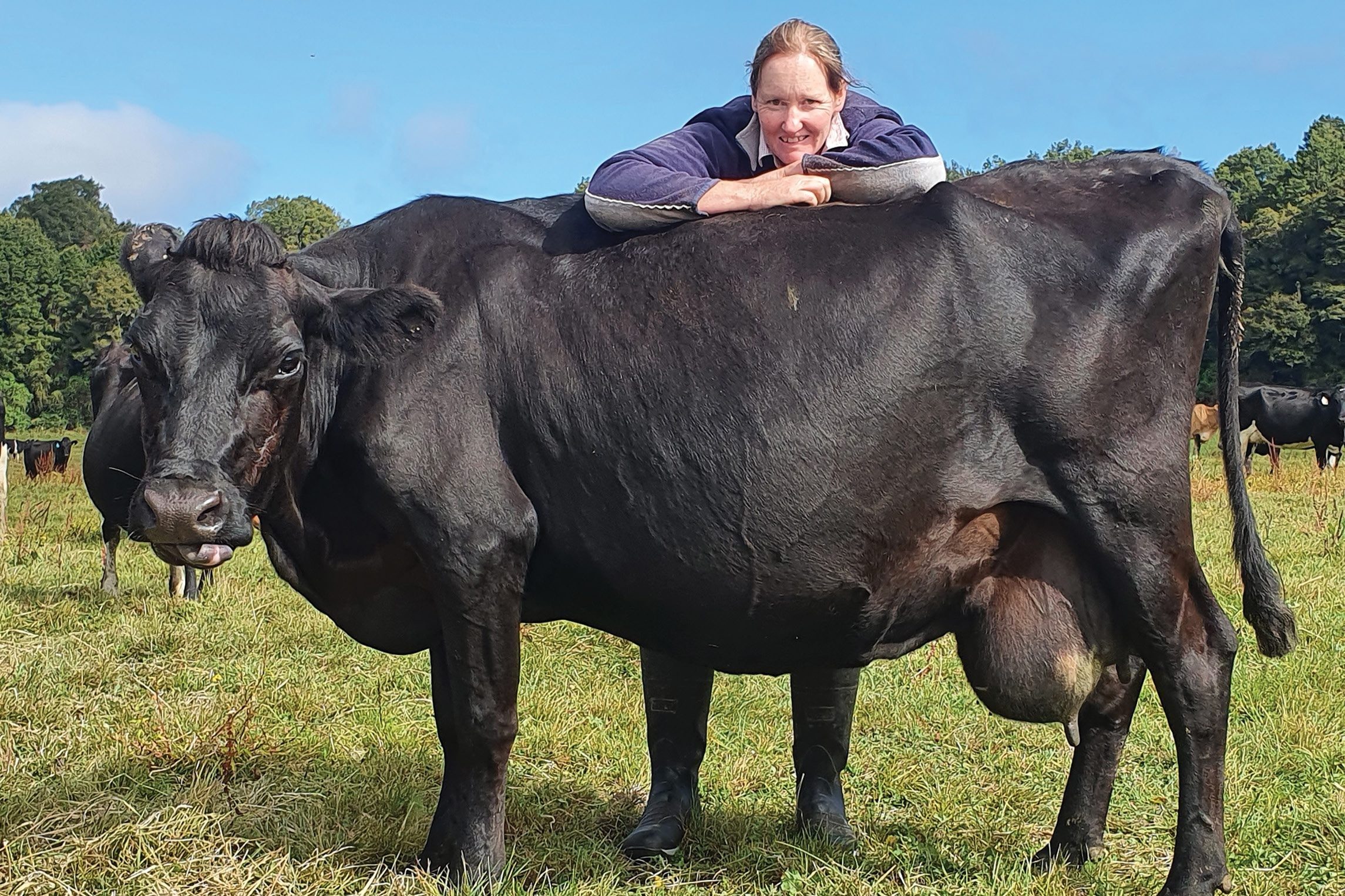By Claire Ashton
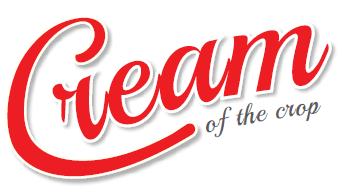 Much to his surprise, Andrew Macky from Paterangi, Te Awamutu, took out the Dairy Industry Awards Waikato Dairy Manager of the Year on March 14. There were 19 entrants in his category and Andrew and his partner Holly, an early childhood teacher and expecting their third child, went along for the dinner with very low expectations.
Much to his surprise, Andrew Macky from Paterangi, Te Awamutu, took out the Dairy Industry Awards Waikato Dairy Manager of the Year on March 14. There were 19 entrants in his category and Andrew and his partner Holly, an early childhood teacher and expecting their third child, went along for the dinner with very low expectations.
“I was amazed to be honest; I came away from the final judging fairly underwhelmed as I thought I had forgotten so much stuff – there is just so much information to remember.”
Andrew picked up four merit awards as well. “I was really pleased with the DeLaval Livestock Management Award, and the Bluegrass Contracting Environmental Sustainability Award as livestock and environment are two passions.”
Andrew runs a 98-hectare, System 2 farm, milking 320 Jerseys on a once-a-day system, introduced eight seasons ago mainly due to the very dry summers and to enable his father William to keep milking into retirement age.
Andrew is in his fourth season and is a fourth-generation farmer on his family farm, established in 1912, and evidence of his great-grandfather’s hand still exists onfarm in the form of homemade troughs, and the old milking shed, though sadly the old homestead is no longer.
He completed a two-year Diploma in Farm Management at Lincoln, then had a few good ‘gap years’ gaining a more rounded experience working on dry stock farms in New Zealand as well as in agriculture overseas, before taking on full-time farm management.
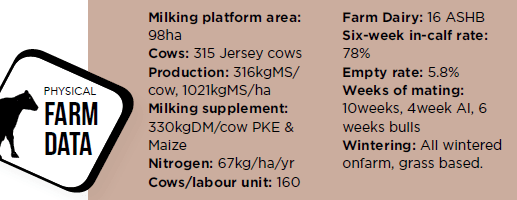 Andrew posts regularly about all things farming on his Youtube channel ‘The Once A Day Farmer’ and Instagram accounts. He has a combined following of more than 15,000 people, and it was after receiving enquiries from his Instagram followers about the Dairy Trainee DIA Awards category that Andrew’s interest was piqued.
Andrew posts regularly about all things farming on his Youtube channel ‘The Once A Day Farmer’ and Instagram accounts. He has a combined following of more than 15,000 people, and it was after receiving enquiries from his Instagram followers about the Dairy Trainee DIA Awards category that Andrew’s interest was piqued.
After some investigation, he thought, “I may as well give it a go myself, I have nothing to lose and then at least I will know more about the awards, and can share that information with other farmers who want to enter in the future.”
“To be honest I felt like pulling out of the awards around Christmas,” admits Andrew but he spoke with Chris Miller, the winner from the previous year, saying, “I didn’t feel confident and thought there were things I didn’t know or didn’t do but was encouraged by Chris that all I could do was give it my best shot.”
Andrew is glad he stayed in the competition and definitely learned from the experience, especially around profitability and efficiency once he looked at his farm system. He gained knowledge and will initiate some system tweaks to increase production, and is looking to put these into practice in the coming season.
Improving his empty rates was an area Andrew has worked on over three seasons.
This was achieved by culling later calving cows, and supplement feeding earlier into September before mating, due to a difficult spring. His goal is to get empty rates under 5% and doesn’t carry any empties over to increase herd fertility and says keeping a short calving window is essential.
“In our first season there were cows still calving in October and it was right before mating started and I really didn’t like that. The following season was the first year we PD’d (pregnancy detected) the cows; pregnancy scanning and dating them enabled me to cull the late calving cows.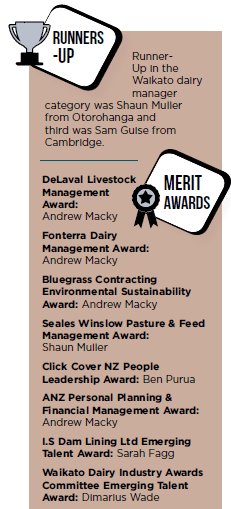
“Every season I am bringing the calving window back to early September which gives cows enough time to cycle before mating starts again, which is crucial.”
Being once-a-day milking also helps cows regain condition after calving.
Andrew loves the breeding and genetics side of dairy farming and is keen to learn more and breed contract cows as he had a contract cow a couple of years ago which got him interested. His plan is to buy the herd one day. “I want to put my stamp on it now before I buy it. The bones are there but I am certain I can improve it.”
He is gradually lifting Breeding Worth and through those improvements could sell the surplus animals in the future for another income stream. He has a cow he really likes and is considering embryo flushing her next year.
The top cow traits he is looking for are; no mastitis, always in calf to AI in the first three weeks (breeding for fertility), low somatic cell count, good capacity, and good teat placement on the udder, which is crucial for once-a-day as they come in quite full.
“Currently we have a 25% replacement rate but if we keep getting low empty rates that will decrease to around 20%.”
Going from System 1 to System 2 is another change Andrew made, primarily because of the dry summers and bringing in more feed, so farm working expenses went up a bit but to counter that, production went up.
Andrew filmed the harvest of his maize for YouTube and had 6ha planted which averaged 20 tonnes per ha, which he was disappointed with as it was a bit green, and the drymatter percentage wasn’t quite there. He also bought in 25t from the neighbour.
During Covid lockdowns he enjoyed time with the family. The family farm is a bit of a fishbowl Andrew says, as it is on the road to Lake Ngaroto which is used for recreational and fishing purposes. Combined with his social media, Andrew has no issues operating transparently. Everyone has perceptions of dairy farming, and he wants to show farming in a positive light.
“One hundred percent I want to improve the public perception of dairying.”
He also remains positive about the upcoming challenges, especially around the environment. Riparian planting is something he would like to do more of and is investigating funding avenues for that.


